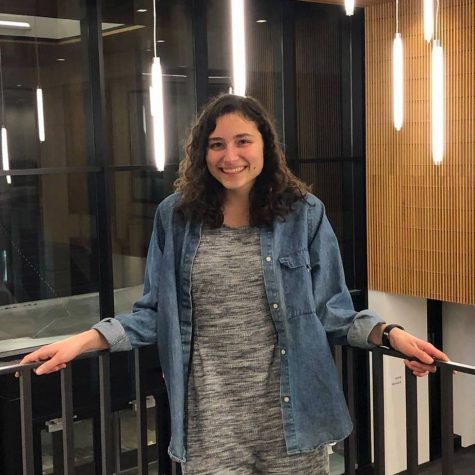Macalester professors join Scholar Strike
September 17, 2020
After the police killing of Jacob Blake in Kenosha, Wis. in late August, a professor at the University of Pennsylvania pitched an idea on Twitter: a multi-day faculty strike to protest racism and police brutality. The idea quickly gained steam, and organizers scheduled a Scholar Strike for Sept. 8 and 9.
Several Macalester professors joined over 600 faculty across the country in suspending classes, holding teach-ins and discussions about racism or directing students to the Scholar Strike YouTube page featuring dozens of short lessons from professors and activists.
“This was… allowing academia to express their outrage with what is happening to Black people… and to highlight how, despite a full summer of protest and cases of police brutality, we end up by the end of [August] with the shooting of Jacob Blake,” anthropology professor Olga Gonzalez said.
Last week’s strike was inspired by a wave of professional athletes walking out of games in late August. But holding an academic strike during remote learning brought on by the pandemic demanded some creativity — with Macalester still in its quiet period, a large public gathering or teach-in on campus wasn’t an option.
Instead, Macalester professors got creative with their participation in the strike.
History and Latin American studies professor Ernesto Capello cancelled the regularly scheduled meeting of his first-year course, introduction to Latin America, on Sept. 8. In its place, he hosted an open space for students to discuss issues of racial justice, which he used to frame the class’s following study on the conquest of the Americas.
“We had a really foundational conversation that is marking not only that next day, but the rest of the semester in a really interesting way,” Capello said. “I think [that] is helping to draw those connections between the past and the present.”
With the strong participation across the country — and many participants in a similar situation of remote work — the Scholar Strike resulted in a wealth of videos and resources that are still accessible for free online.
Professor and chair of American studies Karín Aguilar-San Juan contributed a video about the Philippine Constabulary to the strike’s YouTube page. She shared the strike videos with students in her critical prison studies class.
Aguilar-San Juan is looking beyond just her classes and colleagues, too — she sent the strike materials to activists and friends outside her academic network.
“The thing that was most interesting to me was the digital part, and that it was a proliferation of crowdsourced resources,” Aguilar-San Juan said. “It meant that we could all contribute.”
Gonzalez shared the strike resources with students in her theory in anthropology class, as well. She describes this course as “decanonizing” the field of anthropology — so racism is already a major discussion topic.
In addition to the Scholar Strike videos, Gonzalez also shared an article with her class titled “Dear white anthropologists, let not symbolism overshadow substance,” encouraging her students to take a deeper look at academia’s response to the Black Lives Matter movement
“[This] is questioning what we have been doing since day one after George Floyd’s murder, which is every department and every college and every president writing statements, and then… we don’t do anything else,” Gonzalez said. “So it was about, how do we push the envelope here?”
That question was a prominent one both for the Scholar Strike and here at Macalester. Protests and conversations have occurred throughout the summer, but Scholar Strike participants hoped to point the discussion towards what might happen next.
“The protest itself doesn’t really lead to anything besides expunging an energy,” Capello said. “There’s a cathartic element to a moment of protest, but if you don’t continue and actually try to foment change in a more systematic way, then it just sort of ends up being a large noise.”
Macalester’s early responses to the Black Lives Matter movement this summer included a range of emails from academic departments, a tentative plan for a program to recruit more domestic students of color and the accompanying Minnesota Opportunity Scholarship Fund.
On Sept. 16, President Suzanne Rivera sent a follow-up announcement to the Macalester community outlining a number of new programs for students, faculty and staff at the college aimed to address racial justice, as well.
Participating professors pointed to a need not just for examining the student body, but also examining the barriers to entering academia. That means going beyond the idea of simply diversifying.
Aguilar-San Juan noted that even if students from underrepresented populations are admitted to Macalester, the higher education system is not built for them to succeed. The idea of a good student, she pointed out, is based on students who are independent, financially stable and able to commit themselves entirely to schoolwork.
“We need to have a sort of academic lobotomy,” Aguilar-San Juan said. “Admin and faculty alike… will have to challenge everything they’ve learned about what it means to be a good scholar.”
Ultimately, Gonzalez said, she hopes the strike and continued activism will pave the way for a reckoning in academia.
“If we want to bring first-gen students to bring part of our community — if we want to bring Indigenous students, Black students, Latinx students — we have to create the conditions, and those conditions are part of changing the structure of Macalester,” Gonzalez said. “I think we still have a long way to go.”













